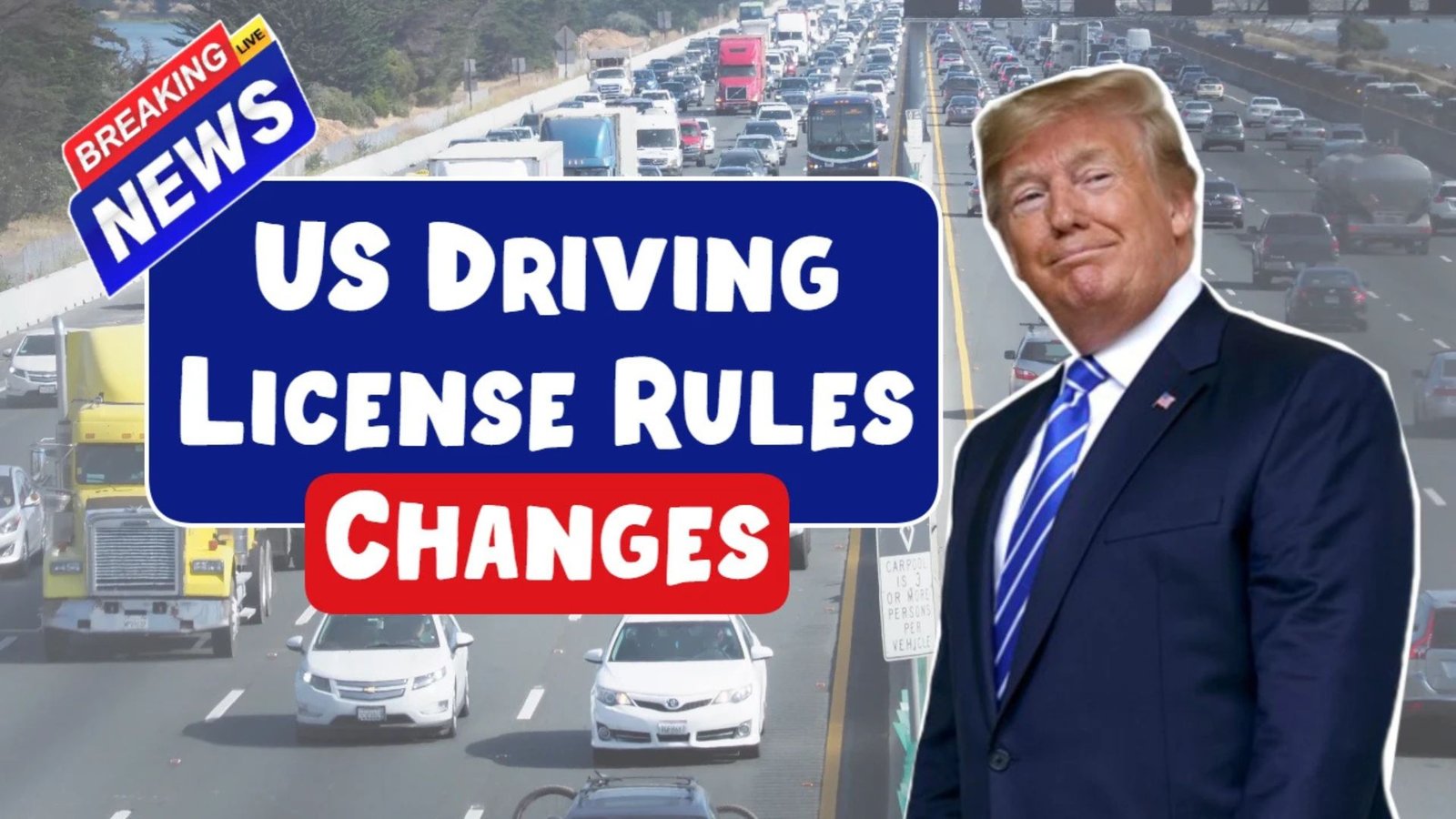Starting September 2025, the U.S. Department of Transportation is introducing new US driving license rules for drivers aged 70 and older. These changes aim to keep roads safe while allowing seniors to maintain their independence. With millions of older Americans driving, the rules focus on fair testing based on ability, not just age. Here’s everything you need to know in simple terms.
Why Are These US Driving License Rules Changing?
More than 48 million Americans over 65 have driver’s licenses, and this number is growing. As people age, changes like weaker eyesight, slower reactions, or memory issues can affect driving safety. The new US driving license rules ensure seniors can still drive if they’re capable, balancing safety with freedom.
Key Reasons for the Change
- Growing Senior Population: More older adults are driving for daily tasks like shopping or doctor visits.
- Safety First: The rules address age-related challenges without unfairly targeting seniors.
- Fair Testing: The focus is on testing skills, not just age, to keep everyone safe.
What’s New in the US Driving License Rules?
The updated rules create a tiered system for license renewals based on age. Seniors will face different requirements depending on their age group, ensuring evaluations are tailored to their abilities.
Renewal Rules by Age Group
- Ages 70–79: Renew your license every 4 years with a vision and reaction test.
- Ages 80–86: Renew every 2 years, with possible cognitive tests if concerns arise.
- Ages 87 and Above: Renew every year with a road test and medical clearance.
Types of Tests for Seniors
Depending on your health and state, you may need to take:
- Vision Test: Checks if your eyesight is good enough for safe driving.
- Cognitive Test: Tests memory and decision-making, only if there’s a concern.
- Road Test: Required annually for drivers 87+ or if a doctor or family reports issues.
Can Someone Report an Unsafe Driver?
Yes, family members, doctors, or caregivers can report concerns about a senior’s driving to the DMV. If reported, the DMV may ask for a re-evaluation to ensure safety. Reports must be based on real concerns, not personal issues.
Restricted Licenses for Safer Driving
If a senior has some limitations, they might get a restricted license. This could mean:
- Driving only during the day.
- Staying within local areas.
- Avoiding highways.
These options help seniors stay mobile while keeping roads safe.
State-Specific Differences
While the US driving license rules are federal, states may apply them slightly differently. For example:
- California: Requires in-person renewals after age 70.
- Florida: Vision tests every renewal for drivers over 80.
- Texas: Annual check-ins for drivers over 85.
Check your state’s DMV website for exact details.
Alternatives to Driving
If driving becomes unsafe, seniors have options to stay independent:
- Ride-sharing apps like Uber or Lyft.
- Community shuttles or senior transport services.
- Help from family or volunteer driver programs.
How Seniors Can Prepare
To stay ready for the new US driving license rules, seniors can:
- Get a recent eye exam.
- Take a defensive driving course.
- Keep medical records updated.
- Check state DMV rules for specific requirements.
Final Thoughts
The new US driving license rules starting September 2025 are about keeping roads safe while respecting seniors’ independence. By focusing on ability rather than age, these rules ensure fairness. Stay informed, prepare early, and keep driving safely!
For more details, visit your state’s DMV website or the U.S. Department of Transportation.




